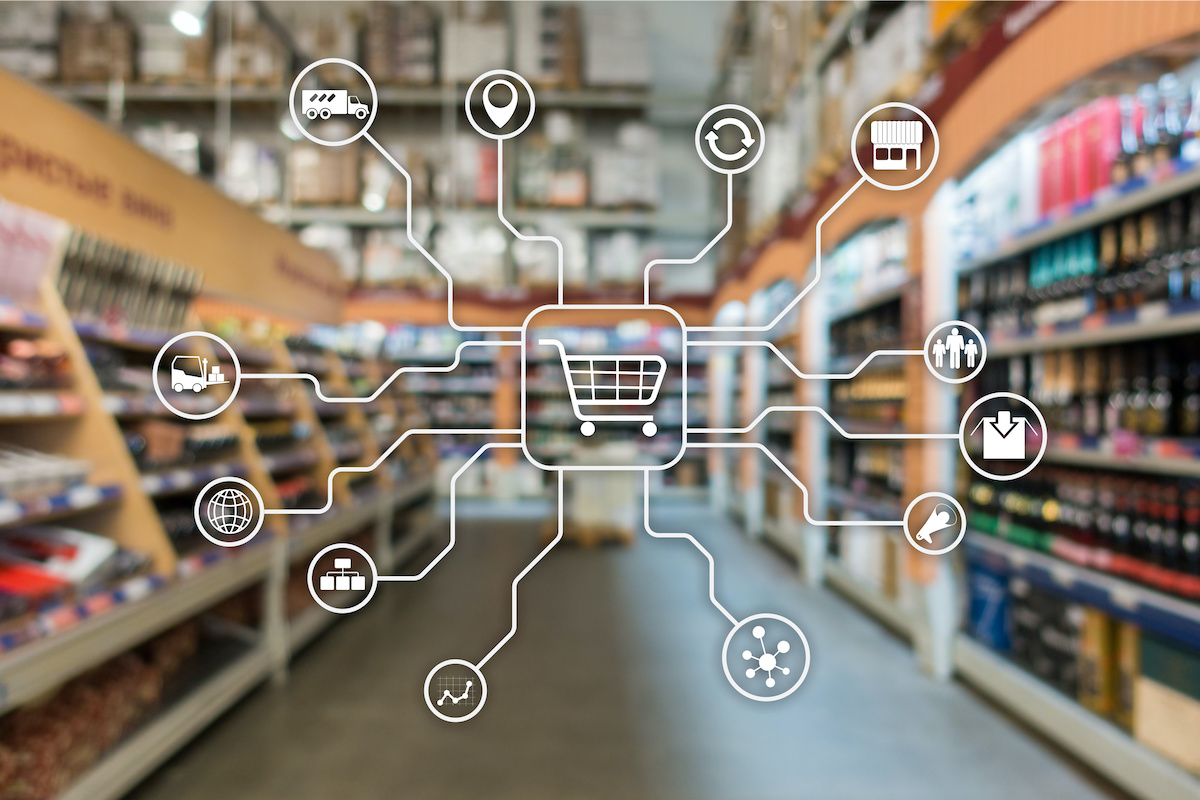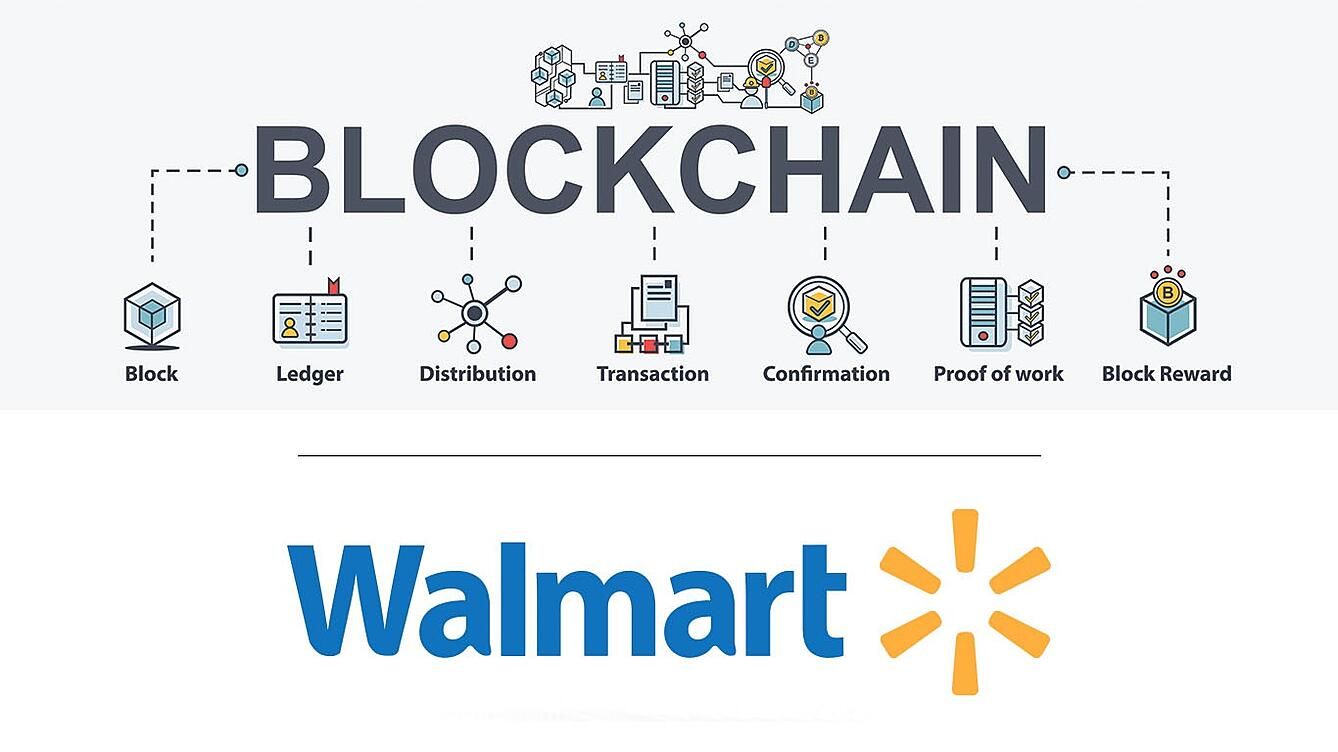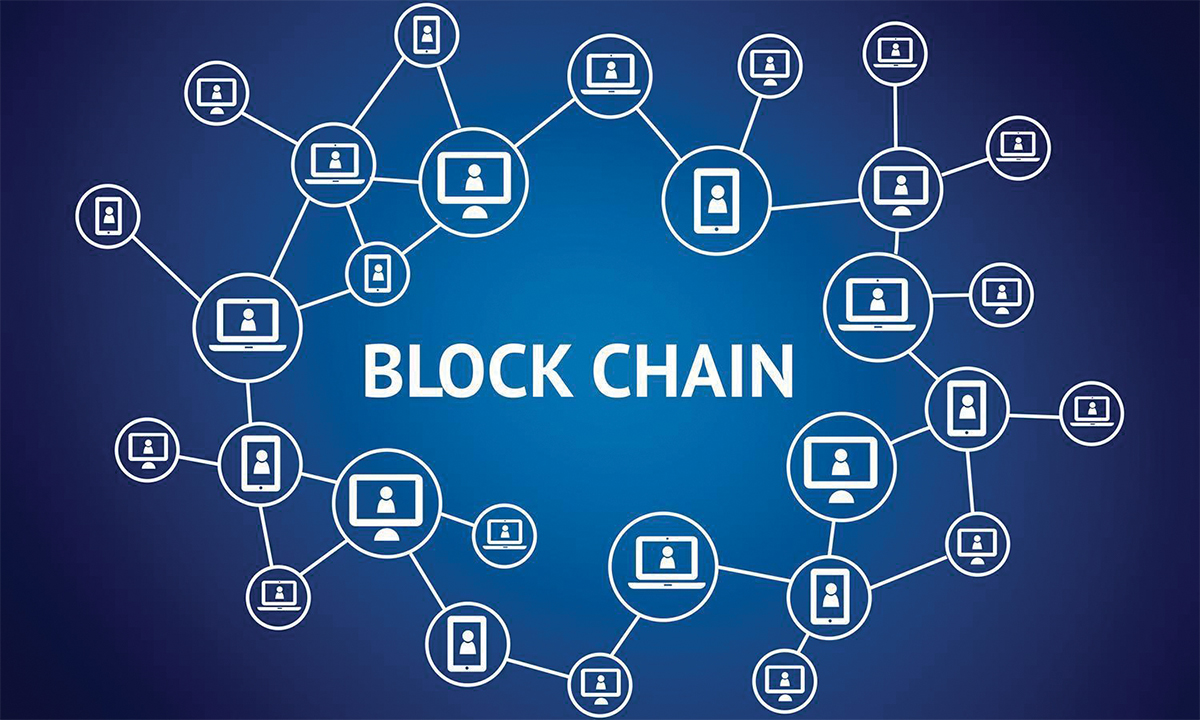How Blockchain Can Revolutionize the Retail Industry
What is a blockchain? Imagine a classroom whiteboard that is accessible to everyone. Once written on the board, it cannot be erased or changed without everyone
- by B2B Desk 2023-06-28 12:42:46
The retail industry has seen a remarkable transformation in recent years, with new technologies and innovations constantly emerging aimed at improving efficiency and customer experience. Among these transformative technologies, blockchain stands out as a game changer.
Blockchain, originally developed for cryptocurrency transactions, provides a secure and transparent way to store and share data without the need for intermediaries. Blockchain in the retail industry has great potential for benefits such as supply chain transparency, improved customer experience and enhanced security. By harnessing blockchain’s unique capabilities, retailers can streamline their operations and gain a competitive edge in today’s crowded marketplace.
In this article, we will explore the various applications of blockchain in the retail industry and how it could revolutionize the way retailers do business.
Imagine a classroom whiteboard that is accessible to everyone. Once written on the board, it cannot be erased or changed without everyone noticing.
This analogy illustrates the fundamental principle behind blockchain.
Blockchain acts as a digital ledger of transactions, similar to a database, shared among multiple parties. Each transaction within a blockchain is recorded in a block, and each block is linked to the previous block in a chain-like structure, hence the term ‘blockchain’.
The information contained in each block is protected using cryptography, making it virtually impossible to tamper with. This ensures transparency, security and immutability of the data stored within the blockchain.
In addition, blockchain has the potential to eliminate middlemen and improve efficiency and transparency across various industries. Its disruptive potential has made it a hot topic among technologists, entrepreneurs and investors.
Blockchain technology offers several key features:

Blockchain technology will greatly benefit the retail industry.
One of the biggest challenges in retail is the lack of visibility within the supply chain. With blockchain, retailers can achieve transparency throughout the supply chain, from raw materials to final product. This transparency makes it easier to identify and resolve issues such as counterfeit products and substandard work practices.
Furthermore, blockchain technology can improve retailers’ payment processing systems, making them more secure, faster and more cost-effective. By providing a decentralized platform for financial transactions, retailers can bypass intermediaries and reduce transaction fees. The system also ensures greater security and privacy for customers, while protecting their sensitive financial information.
In addition, blockchain has the potential to eliminate intermediaries, reduce transaction costs and increase retailer profits. It can automate inventory management, minimize errors and improve efficiency.
Finally, blockchain can enable retailers to develop efficient, secure and transparent loyalty rewards programs that encourage customer loyalty. The system can also collect and track customer data, allowing retailers to provide personalized experiences and improve customer satisfaction.
Many leading retailers have adopted blockchain technology to improve their operations:
Walmart: As one of the world’s largest retail giants, Walmart is actively exploring blockchain technology for food traceability. Working with IBM, Walmart is using the Hyperledger Fabric blockchain platform to develop innovative solutions that ensure food quality and safety. The adoption of blockchain technology aims to create a transparent and secure system that tracks the movement of food products from farm to store shelves.

Target: Target is using blockchain technology to streamline its supply chain management. By initially using hyperlaser saw tooth and later moving to hyperlaser grid, Target can achieve greater transparency and traceability in its supply chain. This allows Target to efficiently track its products from manufacturing to shelves in storage.
Home Depot: A leading retailer, Home Depot is focused on eliminating supplier retention due to supplier mismanagement, which often leads to inventory inefficiencies. To achieve this, Home Depot is working on a blockchain pilot project to track all supplier purchases and ensure they are managed appropriately. By implementing blockchain, Home Depot can create tamper-proof records of every transaction within the supply chain, providing transparency, accountability and optimization of operations.
Blockchain, originally developed for cryptocurrency transactions, provides a secure and transparent way to store and share data without the need for intermediaries. Blockchain in the retail industry has great potential for benefits such as supply chain transparency, improved customer experience and enhanced security. By harnessing blockchain’s unique capabilities, retailers can streamline their operations and gain a competitive edge in today’s crowded marketplace.
In this article, we will explore the various applications of blockchain in the retail industry and how it could revolutionize the way retailers do business.
What is a blockchain?
Imagine a classroom whiteboard that is accessible to everyone. Once written on the board, it cannot be erased or changed without everyone noticing.
This analogy illustrates the fundamental principle behind blockchain.
Blockchain acts as a digital ledger of transactions, similar to a database, shared among multiple parties. Each transaction within a blockchain is recorded in a block, and each block is linked to the previous block in a chain-like structure, hence the term ‘blockchain’.
The information contained in each block is protected using cryptography, making it virtually impossible to tamper with. This ensures transparency, security and immutability of the data stored within the blockchain.
In addition, blockchain has the potential to eliminate middlemen and improve efficiency and transparency across various industries. Its disruptive potential has made it a hot topic among technologists, entrepreneurs and investors.

Key Features of Blockchain Technology
Blockchain technology offers several key features:
- Transparency: All transactions on the blockchain are transparent and visible to all participants within the network. Once a transaction is added to the blockchain, it becomes a permanent and transparent record that cannot be altered or deleted.
- Immutability: Data stored on the blockchain is immutable, which means it cannot be changed or deleted. Once a transaction is added to the blockchain, it becomes an integral part of the ledger, creating a verifiable and manipulable record.
- Security: Blockchain uses cryptographic algorithms to ensure the security and integrity of transactions. This makes it a uniquely secure system, reducing the risk of data compromise or unauthorized access.
- Smart contracts: Blockchain technology enables the use of smart contracts, which are self-executed contracts that enforce predetermined terms and conditions. Once specific conditions are met, smart contracts are executed, eliminating the need for intermediaries.
- Speed and efficiency: Blockchain enables fast and efficient transactions without the need for third-party verification, which ultimately reduces transaction costs and processing times.

The relevance of blockchain in the retail industry
Blockchain technology will greatly benefit the retail industry.
One of the biggest challenges in retail is the lack of visibility within the supply chain. With blockchain, retailers can achieve transparency throughout the supply chain, from raw materials to final product. This transparency makes it easier to identify and resolve issues such as counterfeit products and substandard work practices.
Furthermore, blockchain technology can improve retailers’ payment processing systems, making them more secure, faster and more cost-effective. By providing a decentralized platform for financial transactions, retailers can bypass intermediaries and reduce transaction fees. The system also ensures greater security and privacy for customers, while protecting their sensitive financial information.
In addition, blockchain has the potential to eliminate intermediaries, reduce transaction costs and increase retailer profits. It can automate inventory management, minimize errors and improve efficiency.
Finally, blockchain can enable retailers to develop efficient, secure and transparent loyalty rewards programs that encourage customer loyalty. The system can also collect and track customer data, allowing retailers to provide personalized experiences and improve customer satisfaction.
Retail companies using blockchain technology
Many leading retailers have adopted blockchain technology to improve their operations:
Walmart: As one of the world’s largest retail giants, Walmart is actively exploring blockchain technology for food traceability. Working with IBM, Walmart is using the Hyperledger Fabric blockchain platform to develop innovative solutions that ensure food quality and safety. The adoption of blockchain technology aims to create a transparent and secure system that tracks the movement of food products from farm to store shelves.

Target: Target is using blockchain technology to streamline its supply chain management. By initially using hyperlaser saw tooth and later moving to hyperlaser grid, Target can achieve greater transparency and traceability in its supply chain. This allows Target to efficiently track its products from manufacturing to shelves in storage.
Home Depot: A leading retailer, Home Depot is focused on eliminating supplier retention due to supplier mismanagement, which often leads to inventory inefficiencies. To achieve this, Home Depot is working on a blockchain pilot project to track all supplier purchases and ensure they are managed appropriately. By implementing blockchain, Home Depot can create tamper-proof records of every transaction within the supply chain, providing transparency, accountability and optimization of operations.
Blockchain technology has the potential to revolutionize the retail industry. By adopting blockchain, retailers can ensure the authenticity and quality of their products, improve supply chain efficiency, and increase customer trust.
With the increasing adoption and implementation of blockchain in the retail industry, we expect a more secure, efficient and transparent retail ecosystem. The adoption of blockchain technology will enable retailers to adapt and thrive in an ever-changing marketplace, ultimately providing a better experience for both retailers and customers.
Also Read: Maharashtra Government to roll out blockchain based projects to increase e-governance
POPULAR POSTS
How India’s Online Gaming Ban Triggered a 25% Drop in UPI Payments in Just 9 Days
by Shan, 2025-09-09 12:13:47
Cryptocurrency Explained: How It Works, Key Types, Benefits & Real-World Risks
by Shan, 2025-07-23 08:28:31
Trump’s Big Beautiful Bill Sparks Crypto Clash in Senate: What’s at Stake for Investors?
by Shan, 2025-07-01 12:24:17
$90 Million Crypto Hack at Iran’s Nobitex: Israel-Linked Group Claims Responsibility
by Shan, 2025-06-26 09:43:52
JioCoin: What Is It and How to Earn It Effortlessly?
by B2B Desk, 2025-01-22 09:05:13
Bitcoin Crosses USD 101,000 Amid Optimism Over US Inflation Data Likely Pushing a Fed Rate Cut Decision
by B2B Desk, 2024-12-12 09:49:25
Bitcoin Hits New All-Time High Above USD 100,000 on Optimism Over Donald Trump’s Crypto Plans
by B2B Desk, 2024-12-05 06:20:24
RECENTLY PUBLISHED

Loan EMIs to Drop as RBI Slashes Repo Rate - Full MPC December 2025 Highlights
- by Shan, 2025-12-05 11:49:44

The Agentic Revolution: Why Salesforce Is Betting Its Future on AI Agents
- by Shan, 2025-11-05 10:29:23

Pine Labs IPO 2025: Listing Date, Grey Market Premium, and Expert Outlook
- by Shan, 2025-11-05 09:57:07

Top 10 Insurance Companies in India 2026: Life, Health, and General Insurance Leaders Explained
- by Shan, 2025-10-30 10:06:42

OpenAI Offers ChatGPT Go Free in India: What’s Behind This Big AI Giveaway?
- by Shan, 2025-10-28 12:19:11

Best Silver Investment Platforms for 2025: From CFDs to Digital Vaults Explained
- by Shan, 2025-10-23 12:22:46




 Subscribe now
Subscribe now 